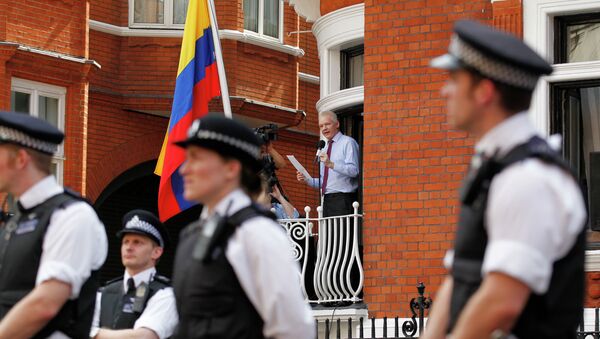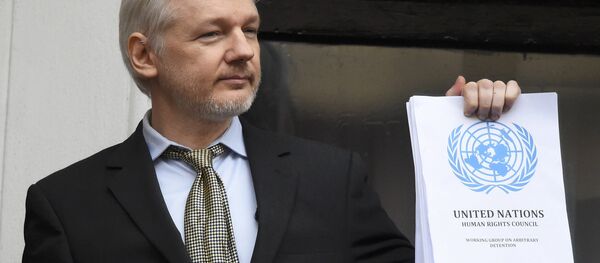The UK has so far spent over US$ 19 million on the stake-out of the Wikileaks founder, who has been holed up in London’s Ecuadorian embassy since 2012.
According to a website called GovWaste, the Britain spends £10,404 per day on its "siege against Julian Assange".
Whither the UK? Its PM vows to scrap its Human Rights Act and it has spent more detaining Assange than its global human rights budget.
— WikiLeaks (@wikileaks) February 24, 2016
This money, according to the website, would be more worth investing in public services such as education and healthcare. For instance, GovWaste suggests using the money to vaccinate over 70,000 kids, or create almost 55,000 hospital beds.
Wikileaks, the whistleblowing website founded by Assange, underlined on Twitter that the amount exceeded Britain’s annual expenditure on human rights and democracy projects worldwide— which has just been doubled to over US$14 million (£10.6 million).
UK global human rights budget £10.6m. Assange siege spend… https://t.co/8iLkB81f4S https://t.co/8b8Pyk3tZS pic.twitter.com/ezFgQUQVFh
— WikiLeaks (@wikileaks) February 25, 2016
The UK has recently been criticized by charity Amnesty International for neglecting human rights and fostering a global "culture of impunity".
Still Spending
In any case it is unlikely that the UK will decide to reallocate the resources it spends to keep tabs on Mr Assange to other uses.
The 42-year-old computer hacker and activist – Assange took refuge in the Ecuadorian embassy in 2012 to avoid being extradited to Sweden for questioning over sex assault allegations.
Mr Assange has always denied the allegations, which he thinks are a ploy to ultimately extradite him to the US, where he might be prosecuted for revealing classified documents through Wikileaks.
Ignoring the Verdict
Earlier this month a UN panel—appealed by Mr Assange in 2014—ruled his detention to be arbitrary and called on Sweden and the UK to free him and give him compensation.
Britain’s foreign secretary Philip Hammond defined the ruling "ridiculous" and confirmed that Assange would still face arrest if he left the embassy.
Mr Hammond added the decision was "flawed in law," arguing that the five-member working group, consisting of current and former law and criminal justice professors, is "made up of laypeople, not lawyers."
His words, and in general the government’s reaction to the ruling, sparked criticism among international jurists and human rights organizations, including Human Rights Watch, which called UK’s behavior "deplorable".




